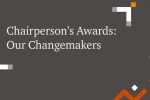PwC’s global CEO survey
Mumbai, 9 March 2016: CEOs in India continue to be more confident about their company’s growth than their global peers. According to PwC’s 19th Annual Global CEO Survey (India report), 64% of the respondents are very confident of their growth prospects in the next 12 months as compared to 35% globally.
How confident are you about your company’s prospects for revenue growth over the next 12 months? (Respondents who replied ‘very confident’)
Comparison with other regions in 2016

Which countries, excluding the one in which you are based, do you consider most important for your overall growth prospects over the next 12 months?
Comparison with previous year

India overtook Brazil in the global CEOs’ ranking of growth markets, jumping up to the fifth place this year from sixth in 2015.
Deepak Kapoor, Chairman, PwC India said, “The confidence reposed by Indian CEOs on growth is quite encouraging, given the backdrop of market and currency volatility, and the transformation in the expectations of consumers, investors and employees.
While the world economy is experiencing uncertainty, CEOs in India are adapting to the situation and making use of technology to better understand and engage with stakeholders, though they do acknowledge the dynamic nature of technology as a new threat. They are also steering their way through apparent paradoxes — they expect to grow their headcount next year even as they propose to increase automation. Further, talent strategies are focussed on leadership pipelines, as workplaces become more diverse,” he added.
CEOs’ perceptions of opportunities are tempered
CEOs in India see more growth opportunities for their companies today than they did three years ago. However, the number of respondents holding this view has dropped from 84% last year to 75% this year. In 2016, the average perception of opportunities and threats is similar across all BRICS nations, while the opportunity-threat gap has narrowed for India and China. This perhaps reflects a creeping sense of realism in the context of the slowdown in China, continued uncertainty and volatility around the globe, as well as the inadequate pickup in demand closer to home in India.
CEOs see speed of technological change as a top new threat
The appearance of speed of technological change as a top concern for Indian CEOs this year, unlike the last two years, is interesting and sobering. Seventy-nine per cent of the CEOs are concerned about the influence the speed of technological change will have on their organisation’s growth.
Additionally, this year, the problem of basic infrastructure and a skilled workforce seems more acute as the proportion of CEOs reporting these two factors as threats has increased as compared to previous years. Exchange rate volatility also concerns 80% of the CEOs in India and 73% of the CEOs globally.
How concerned are you about the following potential economic, policy and business threats to your organisation’s growth prospects? (respondents who selected ‘extremely’ or ‘somewhat’ concerned)

CEOs in India are forecasting a transformation in stakeholder expectations
Eighty per cent of the CEOs believe that over the next five years, technological advances will transform wider stakeholder expectations. A majority of the respondents also expect demographic shifts and change in global economic power to have a similar impact.
Sixty-three per cent of the CEOs feel that customers are seeking a mix of cost, convenience and functionality in products/services. More than half feel that investors are seeking ethical investments and a similar percentage of respondents feel that top talent prefers to work for organisations with social values which are aligned to their own.
CEOs are widely using technology to understand and engage with stakeholders
Ninety-two per cent of the CEOs in India reported that they are making changes to the way they use technology to assess and deliver on wider stakeholder expectations. Data and analytics lead the way, with 78% of the CEOs in India reporting their belief in its importance in generating stakeholder engagement. Customer relationship management systems come next, followed by research and development and innovation.
Will CEOs redefine their organisational purpose?
Eighty-six per cent of the CEOs in India reported that their organisations are expected to address wider stakeholder needs. They are taking specific measures. For instance, 82% are reporting on financial and non-financial matters, while 78% state that their organisations prioritise long-term over short-term profitability.
Business leaders today are becoming more cognisant of the expectations of wider stakeholders and learning to incorporate these in their business strategy and communications.
CEOs are maintaining a focus on people while planning for automation
The focus on the human workforce is evident through multiple data points in the survey: 70% of the CEOs plan to increase their headcount in the next 12 months, and 89% are focussing on workforce rights and well-being. CEOs believe that a skilled, educated and adaptable workforce is important not only for businesses but also for society at large. Data supporting robotic process automation (RPA) is not high today, with only about 1/4th of the CEOs vouching for increased productivity through automation and technology. However, these numbers can increase as advanced RPA hits back-office operations.
CEOs’ talent strategy is focussed on the leadership pipeline
Planning for the future leadership demands that companies prepare for the diversified workplaces and workforces of tomorrow. PwC’s analysis shows that the confluence of varied expectations of organisations and aspirations of talent will diverge the ‘worlds’ of work into three distinct categories and success associated with each.
- The Green world will involve a social and environmental conscience that is demanded by customers and staff right through the organisation and its supply chain.
- The Blue world will be driven by the goal of profits, growth and market leadership, and will attract talent looking for high earnings, job security and status.
- The Orange world will embrace the rise of the portfolio career, hiring a diverse mix of people on an affordable and ad hoc basis.
The leaders of tomorrow will have to seamlessly merge with and work among these worlds. Fifty-eight per cent of the CEOs in India have confirmed the importance of focussing on the leadership pipeline for tomorrow.
CEOs feel the need to be more ready for crises
Sixty-eight per cent of the CEOs in India think that their lack of readiness to respond to a crisis can thwart their organisation’s growth prospects. This concern finds further support in the data as 69% think that their business should be doing more to measure the impact and value of the key risks they face, which is the starting point in the process of responding to and managing risks.
The consensus on risks is apt in a global landscape marred by geopolitical uncertainties, terror attacks across the world, and heightened conflicts in Iraq and Syria, among other places. These risks concern 67% of the CEOs. Cyber security (55%) and volatile energy prices (58%) also pose threats to commercial and national interests and hence worry more than half of the CEOs.
About PwC
At PwC, our purpose is to build trust in society and solve important problems. We’re a network of firms in 157 countries with more than 208,000 people who are committed to delivering quality in assurance, advisory and tax services. Find out more and tell us what matters to you by visiting us at www.pwc.com.
In India, PwC has offices in these cities: Ahmedabad, Bangalore, Chennai, Delhi NCR, Hyderabad, Kolkata, Mumbai and Pune. For more information about PwC India's service offerings, visit www.pwc.com/in
PwC refers to the PwC International network and/or one or more of its member firms, each of which is a separate, independent and distinct legal entity in separate lines of service. Please see www.pwc.com/structure for further details.
©2015 PwC. All rights reserved
Contact us

















